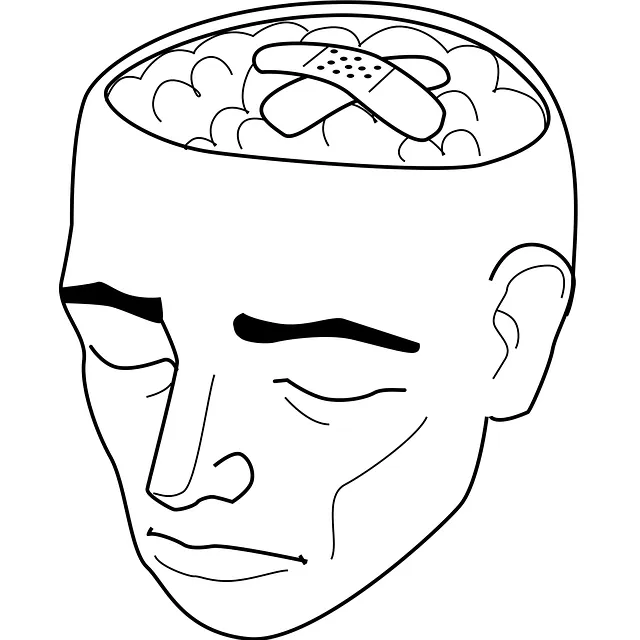In the digital age, demand for mental wellness apps is booming as people increasingly recognize their potential for improving access to care and promoting well-being. Apps like Kaiser Permanente's Norcal Parker, offering counseling, stress management, and mindfulness exercises, have gained popularity, especially among younger users comfortable with technology as a self-care tool. Key features include intuitive navigation, personalized content (e.g., stress management workshops), interactive elements (mood tracking, meditation guides), and secure communication channels like video calls or text. Integrating evidence-based therapies and promoting data privacy ensures effective and accessible mental health support. Kaiser Permanente's digital initiative, accessible through its mental health phone number, breaks down barriers to traditional therapy and empowers users with diverse cultural considerations and self-empowerment tools.
In today’s digital age, mental wellness apps have emerged as powerful tools for managing and improving psychological well-being. With increasing demand driven by rising mental health awareness and accessibility barriers, developers are exploring innovative solutions. This article delves into the development of these applications, analyzing market trends (including Kaiser Permanente Norcal’s success with their phone-based program, Parker), user-centric design, integrating evidence-based therapies, data privacy concerns, and highlighting impactful case studies.
- Understanding Mental Health App Demand: A Market Analysis
- Designing User-Centric Features for Engaging Experience
- Integrating Evidence-Based Therapies and Tools
- Data Privacy and Security Considerations in App Development
- Success Stories: Impact of Mental Wellness Apps – Kaiser Permanente (Norcal) as a Case Study
Understanding Mental Health App Demand: A Market Analysis

In today’s digital age, the demand for mental wellness apps is on the rise, with a growing recognition of their potential to improve access to care and support individuals’ well-being. According to market analysis, there has been a significant increase in users seeking applications that offer counseling services, stress management techniques, and mindfulness exercises. This trend is especially prominent among younger demographics, who are increasingly comfortable with technology as a means of self-care. The success of apps like the Kaiser Permanente mental health phone number Norcal Parker highlights the effectiveness of digital solutions in providing timely and accessible support.
The market analysis further reveals that users not only appreciate the convenience of having professional guidance at their fingertips but also value the personalized experiences tailored to individual needs. Stress Management Workshops Organization and Mind Over Matter Principles have become popular themes, with many apps incorporating these strategies into their core offerings. Additionally, Mental Wellness Podcast Series Production has gained traction as a way to engage users through audio content, making mental health discussions more accessible and appealing to a broader audience.
Designing User-Centric Features for Engaging Experience

In the realm of mental wellness app development, creating a user-centric experience is paramount to fostering engagement and driving positive outcomes. Apps like those offered by Kaiser Permanente Norcal, designed to support emotional healing processes, should prioritize intuitive navigation and personalized features. By integrating tools tailored to individual needs—from stress management techniques to self-esteem improvement exercises—users feel empowered to take control of their mental health journeys.
For instance, incorporating interactive elements such as mood tracking, meditation guides, and access to professional counselors through video calls or text chat (like Parker’s services) enhances user engagement. These features not only encourage consistent use but also provide a sense of community and support. Effective risk management planning for mental health professionals is also integrated, ensuring users feel safe and secure while utilizing the app. This holistic approach ensures that the app caters to diverse needs, making it a valuable tool in the pursuit of improved mental wellness.
Integrating Evidence-Based Therapies and Tools

Integrating evidence-based therapies and tools into mental wellness apps is a pivotal step in enhancing accessibility and effectiveness. Apps developed by organizations like Kaiser Permanente Norcal, which offers mental health phone numbers as a service, can leverage scientific research to provide tailored support. This approach ensures that users receive guidance backed by proven techniques, fostering more meaningful engagement.
By incorporating strategies such as cognitive-behavioral therapy (CBT), mindfulness exercises, and communication skills training—topics often explored in the Mental Health Policy Analysis and Advocacy sphere—apps can become powerful tools for self-improvement. Moreover, featuring interactive features like mental wellness podcast series production can enrich user experiences, making it easier for individuals to stay connected and informed about their mental health journey.
Data Privacy and Security Considerations in App Development

In the realm of mental wellness app development, data privacy and security are paramount. Users, such as those who might be reaching out for help via a Kaiser Permanente mental health phone number in Norcal (Parker), trust that their sensitive information is protected. App developers must adhere to robust security protocols to safeguard personal details, including compliance with regulations like HIPAA, which governs the handling of Protected Health Information (PHI). This involves implementing strong encryption methods, secure storage solutions, and rigorous access controls to ensure that user data remains confidential.
Moreover, apps should be designed with features that promote self-care practices, social skills training, and empathy building strategies, all while maintaining a secure environment. Developers can incorporate privacy settings that allow users to control their information sharing, anonymize data where possible, and provide transparent data usage policies. By prioritizing these considerations, mental wellness app developers not only build trust with users but also contribute to a more supportive and accessible digital landscape for those seeking mental health resources.
Success Stories: Impact of Mental Wellness Apps – Kaiser Permanente (Norcal) as a Case Study

Kaiser Permanente (Norcal) is a prime example of how mental wellness apps can significantly impact healthcare delivery and patient outcomes. Their app, designed to support members in navigating their mental health journey, has been a game-changer in accessing care. Users can connect with a network of mental health professionals through live chats, video calls, or text messages, offering immediate assistance. This accessibility is particularly beneficial for individuals who might otherwise face barriers to traditional therapy, such as stigma, cost, or geographic constraints.
The app incorporates various features like self-awareness exercises and mental health education programs designed to promote user engagement and empowerment. By fostering cultural sensitivity in mental healthcare practice, Kaiser Permanente’s initiative ensures that diverse populations receive tailored support. This holistic approach has led to numerous success stories, with users reporting improved symptoms, enhanced coping mechanisms, and increased overall well-being, making the app a valuable resource for mental health management.
Mental wellness apps have emerged as powerful tools in addressing the growing demand for accessible and personalized mental healthcare. As evidenced by Kaiser Permanente (Norcal)’s successful implementation of these solutions, such apps can significantly improve user experiences while offering evidence-based therapies at scale. By integrating secure data privacy measures, developers like Parker can ensure user trust and compliance with regulations, ultimately fostering a healthier digital landscape. This market analysis highlights the potential for mental health app development to revolutionize access to care, making it an exciting time for innovators in this space.






